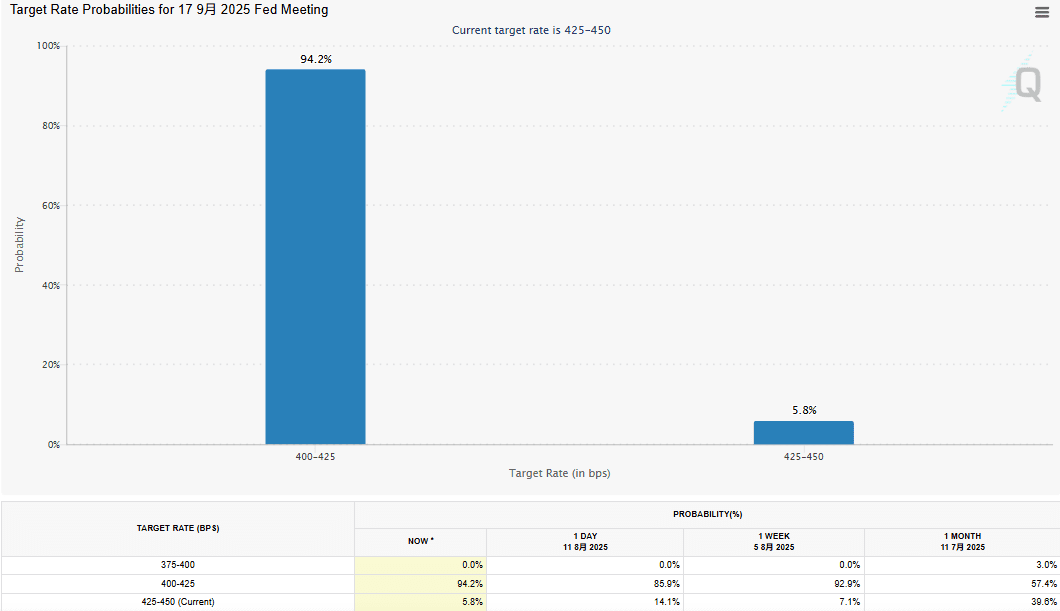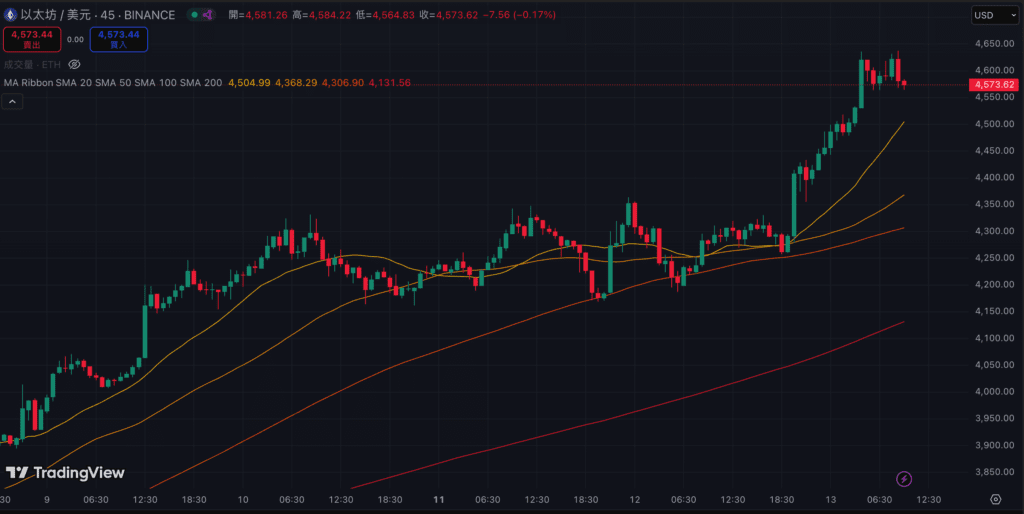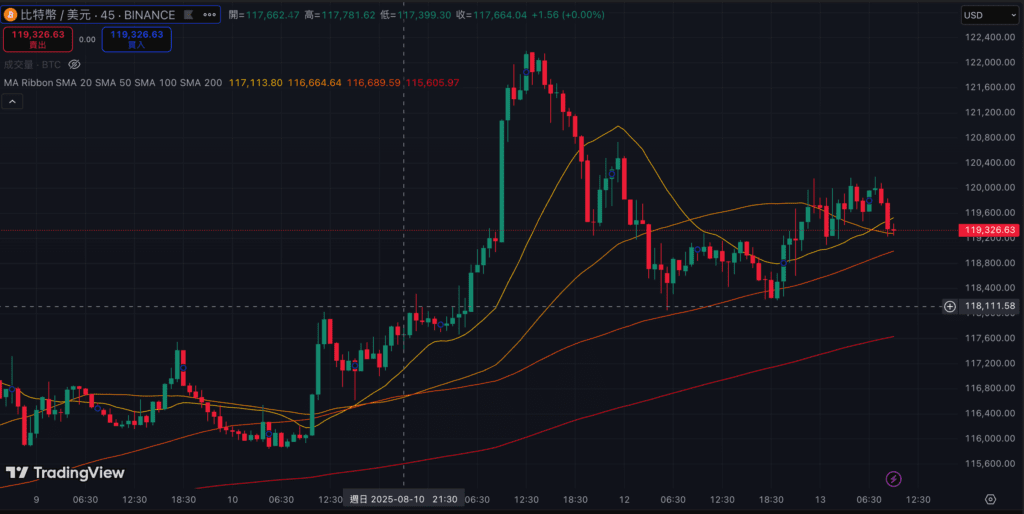The U.S. Bureau of Labor Statistics (BLS) released the July Consumer Price Index (CPI) report last night (12), revealing the latest dynamics of inflation trends in the United States. The report shows that the overall CPI annual growth rate for July is 2.7%, unchanged from June but lower than the market expectation of 2.8%; the monthly growth rate is 0.2%, slightly lower than June's 0.3%.
The core CPI (excluding food and energy) annual growth rate rose to 3.1%, up from 2.9% in June, reaching a new high in nearly six months, with a monthly growth rate of 0.3%, higher than June's 0.2%.
Expectations for a rate cut in September have risen
Although Federal Reserve Chairman Jerome Powell has repeatedly emphasized that he will not consider a rate cut until the impact of tariffs on prices is determined, after the release of the July CPI data, market expectations for a rate cut in September have significantly heated up.
First, Nick Timiraos, a journalist known as the 'Fed's mouthpiece' from the Wall Street Journal, stated on platform X that, although the CPI data for July is not a 'no-inflation' result, the level of inflation may not be enough to hinder a rate cut in September. Additionally, Tiffany Wilding, an economist at Pacific Investment Management Company (PIMCO), further pointed out that the tariff-related pressures are mainly concentrated in the goods sector, with a slower transmission process, while inflationary pressures in other sectors appear to be very manageable. Wilding believes that this is a positive signal for the Fed, indicating that the inflation environment is conducive to adjustments in monetary policy.
At the same time, the market's confidence in a rate cut is also reflected in the prediction markets. On the two major prediction platforms, Polymarket and Kalshi, the odds of betting on the Fed cutting rates in September have exceeded 80%, although the market generally believes that the rate cut may be 25 basis points, rather than a more aggressive 50 basis points.
Finally, according to the CME Watch tool, the market currently believes the Fed has a 94% chance of cutting rates by 25 basis points in September.

Trump: Tariffs did not exacerbate inflation; will sue Powell
After the July CPI report was released, President Trump also posted on Truth Social, stating that Powell must cut rates now and mentioned that he is considering allowing a lawsuit against Powell, accusing him of wasting billions of dollars on the renovation of the Fed building:
Powell is really too late; rates must come down now. He is always 'too late', causing immeasurable damage. Fortunately, the economy is performing very well, and we have broken through the limits set by Powell and that complacent Fed committee. However, I am considering allowing a major lawsuit against Powell because of his poor and extremely incompetent management of the Fed building's construction. This project cost $3 billion, which should have only been a $50 million renovation. It's outrageous!
Subsequently, Trump continued to emphasize that tariffs have brought massive revenue to the United States, rather than causing greater inflationary pressure:
Tariffs have brought trillions of dollars in revenue to the United States, which has brought incredible benefits to our nation, the stock market, overall wealth, and nearly every aspect. It turns out that even at this stage, tariffs have not caused inflation or any other problems for the United States; instead, they have allowed massive cash influx into our treasury. Moreover, data shows that in most cases, consumers do not even need to pay these tariffs, as they are mainly borne by businesses and governments, many of which are foreign companies and governments footing the bill. But David Solomon and Goldman Sachs refuse to give the necessary recognition. Their predictions about market impact and tariffs themselves were wrong long ago, just like their predictions on many other matters are also wrong. I think David should find a new economist, or perhaps he should focus on being a DJ instead of worrying about running a major financial institution.
U.S. stocks rise
After the CPI report was released, U.S. stocks collectively rose, with the four major indices performing as follows:
Dow Jones Industrial Average: up 1.09%, or 480 points, closing at 44,448.84 points
S&P 500 Index: up 0.68%, or 41 points, closing at 6,415.14 points
NASDAQ Index: up 0.61%, or 123.75 points, closing at 21,502.94 points
Philadelphia Semiconductor Index: up 1.73%, or 98.35 points, closing at 5,770.89 points
Ethereum breaks through $4,600
In the cryptocurrency market, Ethereum surged after the CPI was released, breaking through $4,600, reaching a new high since January 2022, and is less than $300 away from the historical high at the end of 2021.

Bitcoin, on the other hand, is relatively weak, still oscillating narrowly around $120,000, slightly dropping to the 119,300 level in the morning.



